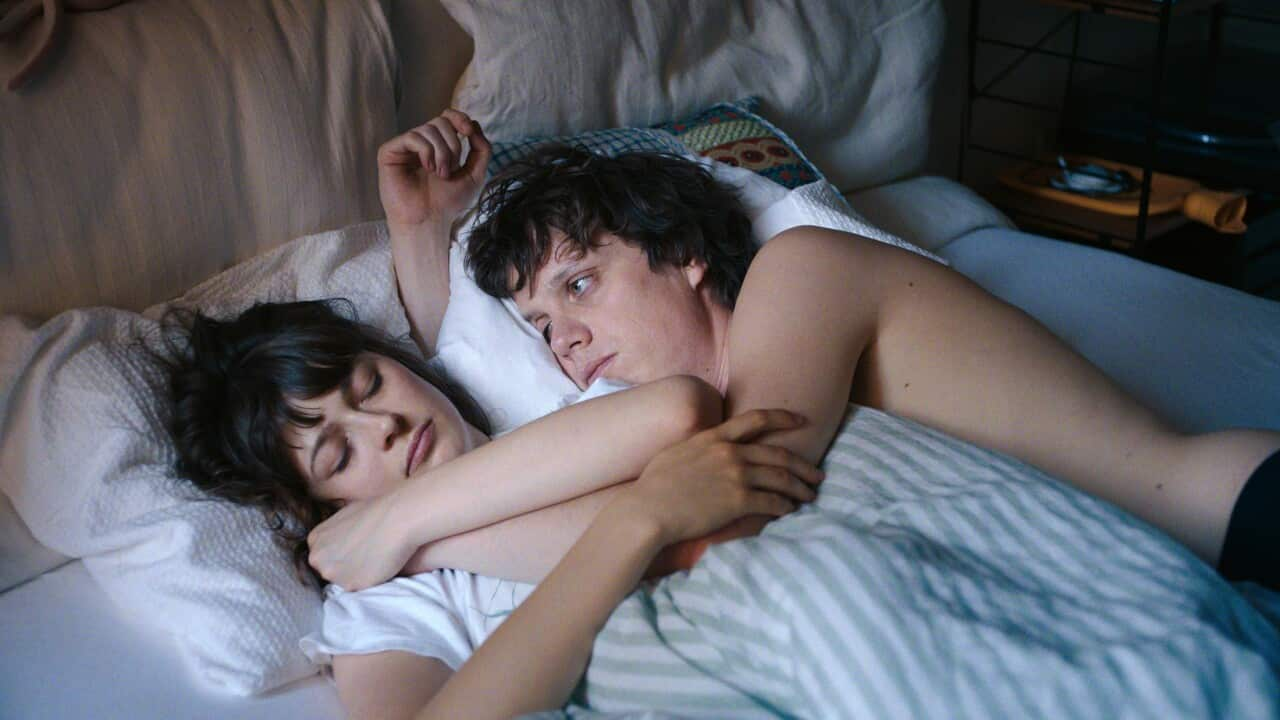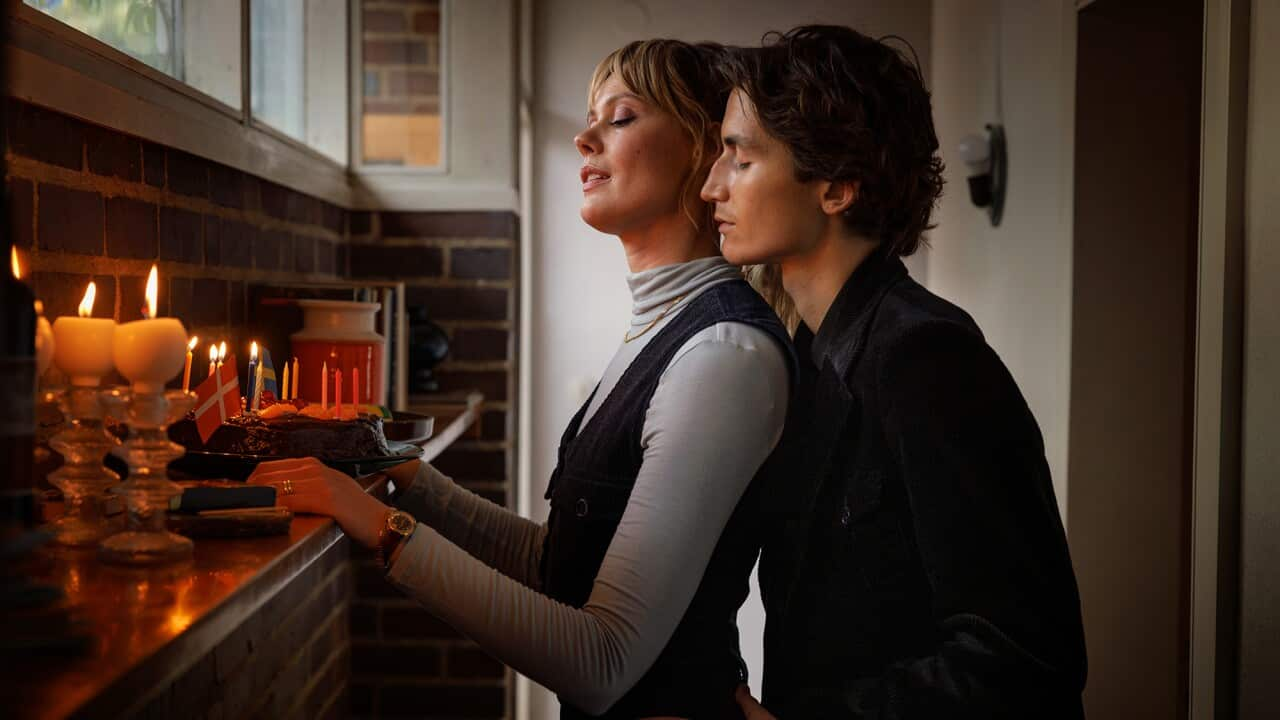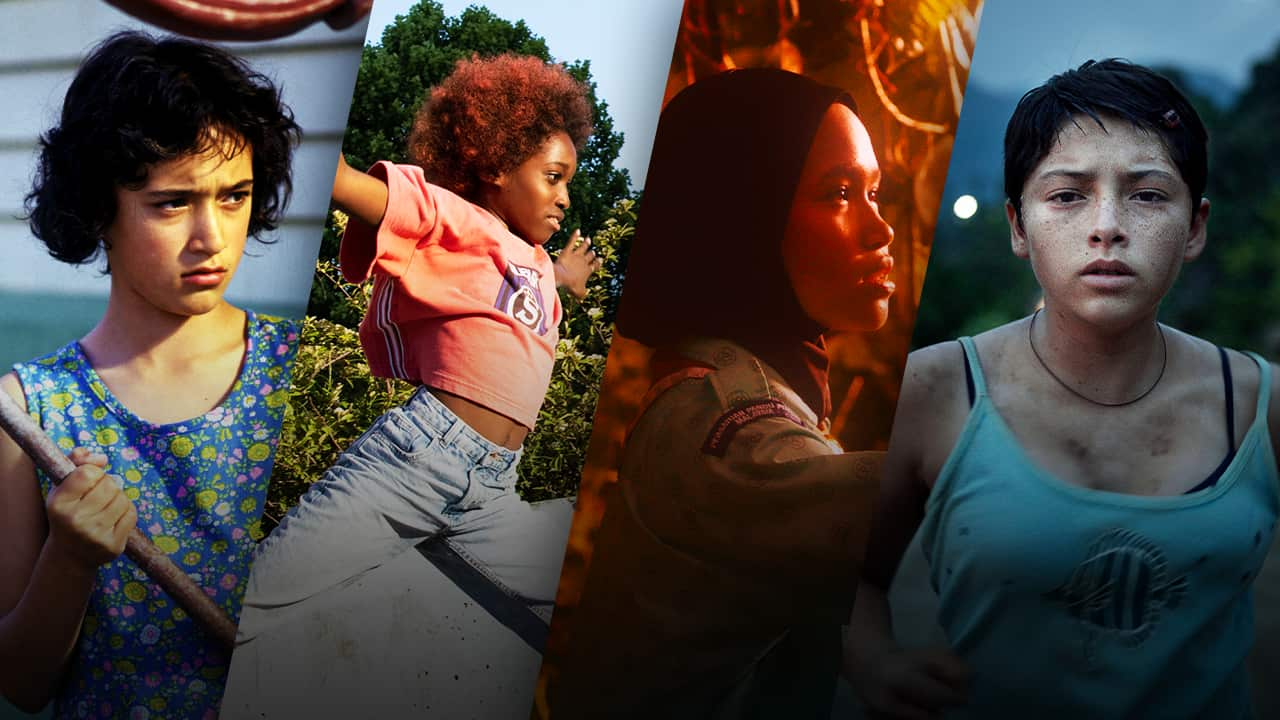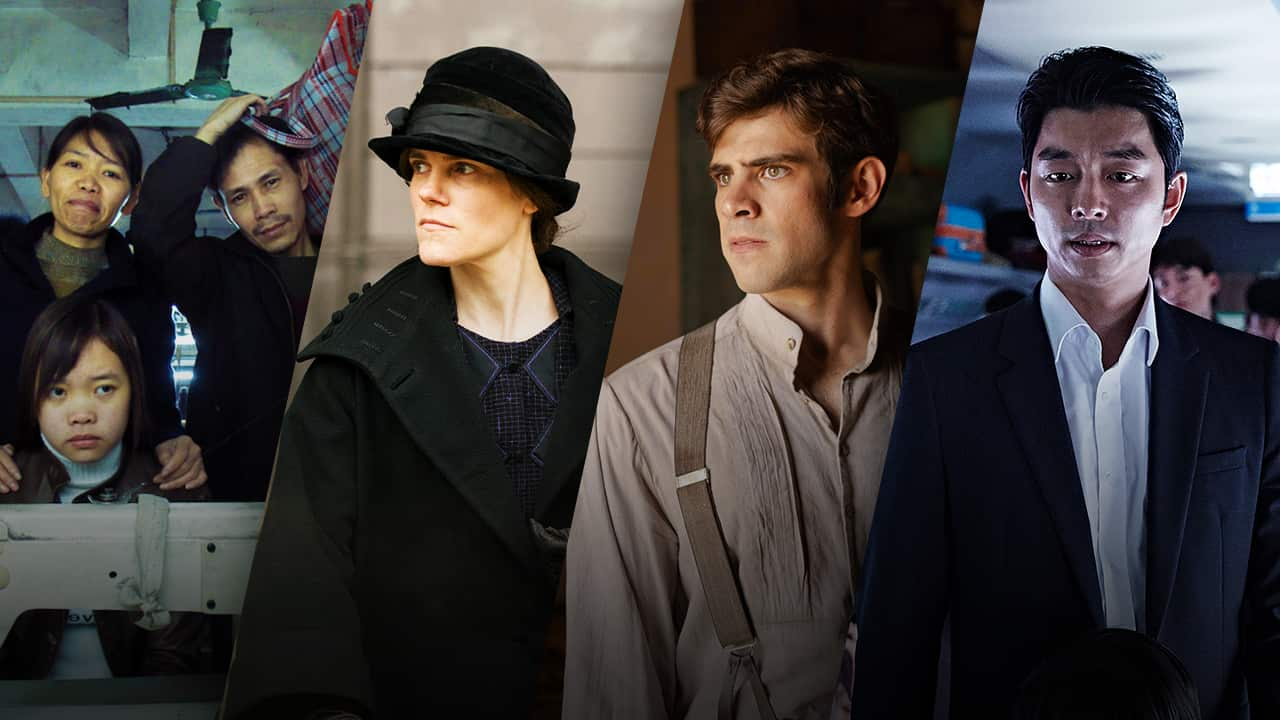Together for 15 years, pharmacist Freddy and art restorer Zeno appear to have a happy, stable (and happily monogamous) relationship. So Zeno (Simon Steinhorst) is taken by surprise when Freddy (Linda Blümchen) proposes a radical experiment: for 30 days, both are allowed to have sex with whoever they want. He is bemused, but agrees, and what follows is a series of encounters that see each of them affected and changed in different ways.
"The 30-day agreement is like dipping your toes in the water [of an open relationship] without really diving in. But it still has a significant impact on them," says co-director Pia Hellenthal.
"In reality, such a secret desire [to experiment] exists in many people," says head writer and co-director Batosz Grudziecki.
Here, Grudziecki and Hellenthal talk about the challenges of creating a realistic reflection of the emotions involved in this experiment; how they approached the sex scenes; and what the series is really about.
Why did you decide on this particular couple, Freddy and Zeno?
Pia: Open relationships, polyamory, etc. are almost mainstream nowadays. With Freddy and Zeno, however, we‘re dealing with a heteronormative couple who have unquestioningly adopted the norms of a monogamous partnership. The series begins with Freddy wondering if there are other ways of living, given the traditional future of children and marriage that is imminent. The 30-day agreement is like dipping your toes in the water without really diving in. But it still has a significant impact on them. Because opening up to others brings up something they haven‘t learned to communicate about with each other. This leads to problems.

Freddy (Linda Blümchen) and Zeno (Simon Steinhorst). Credit: Trimafilm / SWR / Beta Film / Sabine Panossian
Bartosz: I wanted to tell the story with a couple ... that doesn‘t stand out by trying 'crazy things', but quite the opposite – they‘re actually from the heart of society. It‘s a couple that doesn‘t have a loud relationship with flying plates, but a very loving, caring and tender one. In this constellation, I find their desire to participate in the experiment for 30 days much more genuine, accessible, and therefore touching. Because, in reality, such a secret desire exists in many people. When writing in our mixed writers‘ room, it also helped us a lot to swap male and female roles in order to get to the believable core of the emotions and to avoid clichés.
How did you approach the sex scenes?
Bartosz: Actually, I often find sex scenes rather dreadful. Either they make me uncomfortable because I feel the cliché, the aestheticisation of sex - or you can see through the banal trick of quickly establishing closeness between two characters who don‘t really belong together. So it was a great challenge both to write and to direct these scenes. It was clear to me from the beginning that it would only be interesting and good if we did it with the greatest possible realism. Because behind all the little emotional uncertainties, behind the moments of shame, behind the skin that doesn‘t always have to look perfect, there are emotions - and most importantly – humour. Because we laugh the loudest when we secretly see ourselves in the situation being portrayed. And it was only with this approach, to avoid all clichés, that all the actors, together with our intimacy coordinator Cornelia Dworak, were prepared to immerse themselves in the scenes in such a way that something very special could emerge, something you probably don‘t see very often on television.

Freddy (Linda Blümchen) in '30 Days of Lust'. Credit: Trimafilm / SWR / Beta Film / Janis Mazuch
Pia: We approached the scenes the same way we would any other scene. What‘s the core? What‘s the subtext? What does each character want from the other? Based on that, we thought about the setting, the framing and the mood. The new part for me was coordinating the intimacy. It really helped the actors to feel safe because they could anticipate everything. But it‘s also unfamiliar at first because it brings extra attention to the sex scenes, which I usually try to avoid when directing.
What consequences did this have for the writers‘ room?
Bartosz: The moment it became clear how we wanted to tell the story, there was suddenly a huge sense of liberation, a sigh of relief. This honest approach not only allowed us to talk and write in a very humorous way about all sorts of experiences
and fantasies of our main characters, but also allowed us, as a proxy for our viewers, to venture into narrative territories rarely seen in series!
Besides dating and sex – what is your series really about?
Pia: I think it‘s about relationship models and their respective limits. About growing together and growing apart, about the desire to reinvent oneself. In essence, Freddy‘s suggestion of 30 days is nothing more than a desire to experience herself differently than with Zeno. Who else could I be? What can anyone else give me? I feel that our approach to love today is heavily influenced by capitalism. Our relationships have changed – I‘m talking about the Western world as I know it. In the past, the soul mate was God, relationships weren‘t limited to the 'spouse‘ but extended to a whole community, a family. Today, when we choose a partner from a myriad of options, we often expect one person to be everything: soulmate, best friend, business partner, lover, accomplice, etc. One person for everything – that seems to me to be an unreasonable expectation of a person. "I can‘t always be everything to you,“ Freddy tells Zeno, creating uncertainty in their relationship.

Zeno (Simon Steinhorst) and Freddy (Linda Blümchen). Credit: Trimafilm / SWR / Beta Film / Janis Mazuch
A series with 8 episodes – and 2 directors. What did your collaboration look like?
Bartosz: In 30 Days of Lust, we tell an incredible variety of stories about people, situations, and social backgrounds that Freddy and Zeno encounter during their experiment. To do justice to this, it was important to me to involve all the creatives in the process, with their voices, realities, and different sensitivities. I never wanted staff writers in the writers‘ room or directors who simply followed instructions; I wanted creatives with a strong desire to tell their own stories from the heart. This is what will make 30 Days of Lust a series that will emotionally engage viewers! Working with Pia was very intense, as we tried to represent this diversity in all aspects, such as casting, visual concept, and music. At the same time, it was important to ensure that we had one common vision, in which Freddy and Zeno‘s emotions are consistently told as one cohesive story from start to finish.
Pia: When I joined the project, the scripts were already in place. Bartosz and I then sat down and discussed the series as a whole, making certain adjustments across the whole story arc and discussing things like sex scenes, side characters, and the emotional dynamics of the characters. Then we divided the episodes between us and each worked on our respective scripts. Of course, there were differences of opinion ...[but] During casting, we often developed a similar feel for people and characters, as well as for each other.
30 Days of Lust is streaming at SBS On Demand.
Stream free On Demand

30 Days of Lust







